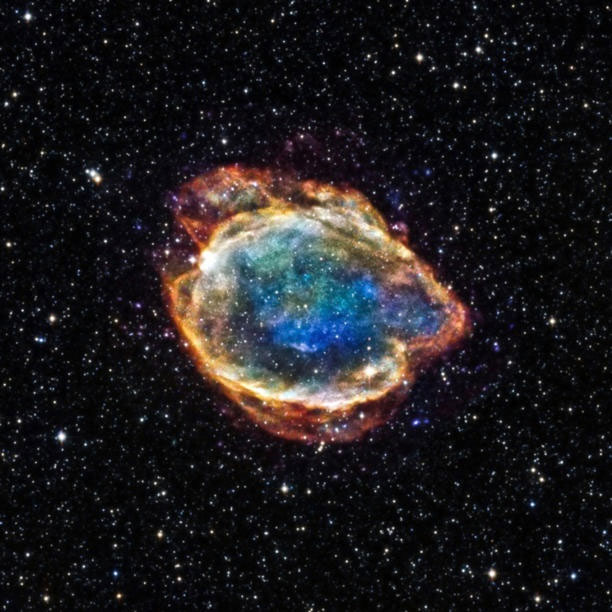The most accurate measurements to date regarding the structure and expansion rate of the universe have raised doubts about humanity’s previous understanding of the cosmos.
A report published in the journal The Astrophysical Journal confirms that there appears to be a significant discrepancy between two different methods for estimating the expansion rate of the universe.

Image of a supernova explosion.
The new report indicates that approximately 5% of the universe is composed of what is known as ordinary matter, while the remaining portion consists of dark matter and dark energy. Both dark matter and dark energy remain mysterious.
Dark energy, believed to be responsible for the accelerated expansion of the universe, accounts for 66.2% of the universe, according to the report.
The remaining 33.8% is a combination of ordinary matter and dark matter.
To draw the most accurate conclusions to date about the composition of the universe, an international team of experts observed supernova explosions. They analyzed the light emitted from 1,550 different supernova explosions, ranging from those closer to Earth to those that occurred up to 10 billion years ago.
“We can compare and witness how the universe behaves and evolves over time,” AFP quoted the team leader Dillon Brout from the Harvard-Smithsonian Center for Astrophysics (based in Cambridge, Massachusetts, USA).
Brout leads a project called Pantheon+, aimed at providing the most precise measurements of the universe’s structure. His team analyzed data collected over more than two decades of cosmic observations by experts worldwide.
The Pantheon+ team estimates that the universe is expanding at a rate of 73.4 km/megaparsec, or 3.26 million light-years per year, equivalent to approximately 255,000 km/h, according to a statement from the Harvard-Smithsonian Center for Astrophysics.
However, this figure differs from previous estimates based on measurements of the cosmic microwave background radiation, which is the electromagnetic radiation produced about 300,000 years after the Big Bang.
This earlier data estimated the expansion rate at approximately 67 km/megaparsec, which is significantly slower than the latest measurements.


















































